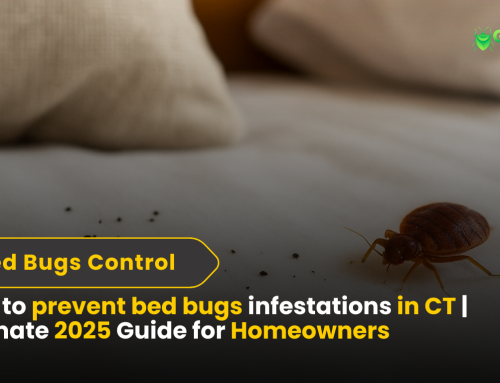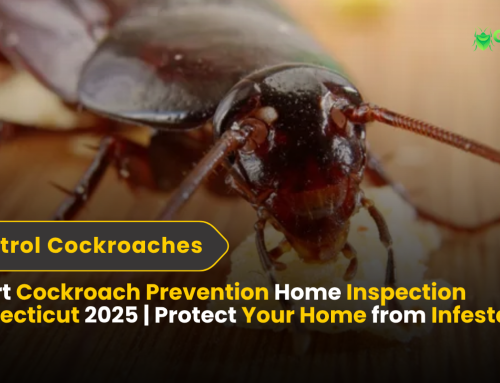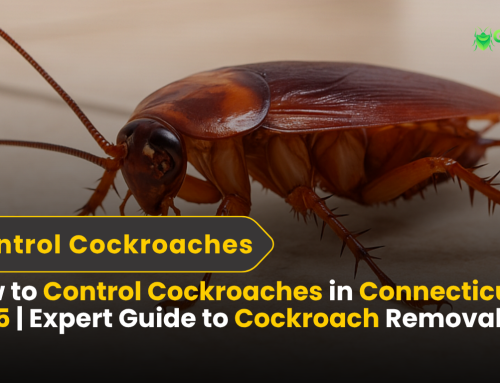How Dangerous Are Hornet Stings? A 2025 Health Review
How dangerous are hornet stings? Hornet stings are more than just a painful nuisance they can pose serious health risks, especially for children, the elderly, allergic individuals, or anyone stung multiple times. While many people experience only temporary pain, redness, and swelling, hornet venom can sometimes trigger life-threatening reactions, including anaphylaxis or systemic shock. Knowing how dangerous hornet stings are, recognising symptoms early, and responding appropriately can protect both you and your loved ones.
Hornets are more aggressive than bees and wasps, particularly when defending their nests. Unlike bees, hornets can sting multiple times, injecting potent venom with each sting. Awareness and proactive preventive measures are crucial to reducing risks during outdoor activities.
What Happens When a Hornet Stings You?
Understanding how dangerous hornet stings are starts with knowing what happens in your body. Hornets inject venom through a sharp stinger that affects your nervous system, blood circulation, and immune response. The severity of symptoms depends on your body’s sensitivity, the number of stings, and the location of the sting on the body.
Common Symptoms Include:
- Intense, burning pain at the sting site lasting several hours, sometimes extending to surrounding areas.
- Redness, swelling, and warmth, which may increase gradually over time.
- Itching, hives, or small rashes appearing immediately or within a few hours.
- Mild systemic symptoms like nausea, headache, or slight dizziness, particularly in sensitive individuals.
Severe Reactions Can Include:
- Swelling of the face, lips, tongue, or throat, potentially obstructing breathing.
- Difficulty breathing, chest tightness, or wheezing indicates a severe allergic reaction.
- Dizziness, fainting, rapid heartbeat, or sudden weakness may indicate anaphylactic shock.
- Multiple stings can dramatically increase venom exposure, overwhelming the immune system.
A 35-year-old man in Florida was stung by a hornet nest while trimming trees. Despite no prior allergies, he experienced rapid facial swelling and breathing difficulty. Immediate epinephrine administration and emergency care saved his life.
Hornet Venom Composition & Effects on the Body
One reason how dangerous hornet stings are is due to the potent venom composition. Hornet venom contains a mixture of proteins, enzymes, and toxins that attack nerves and blood cells.
Key Components Include:
- Mastoparans: Trigger pain and inflammation, increasing swelling at the sting site.
- Phospholipases: Damage cell membranes, sometimes causing tissue necrosis in extreme cases.
- Hyaluronidase: Helps venom diffuse faster through tissue.
- Acetylcholine & Histamine: Contribute to immediate pain, itching, and allergic responses.
Effects on the Body:
- Immediate sharp pain and localised swelling.
- Risk of systemic reactions in sensitive individuals.
- Multiple stings can lead to nausea, fever, and in extreme cases, kidney or liver complications.
Understanding venom composition highlights how dangerous hornet stings are is often underestimated by people outdoors.
Health Risks of Hornet Stings
Knowing how dangerous hornet stings are is critical, especially for certain groups.
High-Risk Groups Include:
- Allergic Individuals: Those allergic to insect stings can experience anaphylactic shock, which is fatal without immediate intervention.
- Children and the Elderly are more sensitive to venom and have slower recovery.
- Multiple Stings Victims: Increase venom load and systemic reaction risk.
Additional Risks:
- Individuals with heart conditions or immune deficiencies may experience severe complications even from a single sting.
- Chronic exposure to hornet-infested areas can lead to repeated stings and cumulative venom effects.
Always carry an epinephrine auto-injector if you have known allergies. Immediate access can save lives.
Symptoms to Watch For
Recognising early warning signs tells you how dangerous hornet stings are for each person. Reactions range from mild to severe, and early recognition can prevent complications.
Hornet Sting Severity & Recommended Action
|
Severity |
Symptoms | Recommended Action |
Notes / Extra Tips |
|
Mild |
Pain, redness, swelling at the sting site; slight itching or hives | Clean area with soap & water, apply ice, take antihistamines |
Usually resolves within 24 hours; monitor for worsening |
|
Moderate |
Swelling spreads beyond the sting site; persistent itching; mild nausea | Apply ice, take antihistamines, and monitor for new symptoms |
May last 1–2 days; keep the area elevated |
|
Severe |
Swelling of face, lips, or throat; difficulty breathing; dizziness; rapid heartbeat | use epinephrine if prescribed |
Could indicate anaphylaxis; rapid action is critical |
|
Multiple Stings |
Multiple sites of pain, swelling, and systemic reactions | Seek emergency care even if no allergy history |
High venom load can overwhelm the body; hospitalisation may be required |
|
Allergic Individuals |
Any sting triggers facial swelling, breathing difficulty, hives, and nausea | Administer epinephrine immediately and call emergency services |
Never delay treatment; always carry an auto-injector |
Closely monitor stings, as how danger of hornet stings can change rapidly within minutes.
First Aid and Emergency Response
Immediate care is essential for knowing how dangerous hornet stings are.
Home Care Steps:
- Remove the stinger immediately using gentle scraping to avoid pushing more venom.
- Wash the area thoroughly with soap and water to prevent infection.
- Apply a cold pack to reduce swelling, redness, and pain.
- Take antihistamines to alleviate itching and mild allergic reactions.
- Elevate the affected area if possible.
Emergency Care:
- Administer epinephrine if prescribed for allergies.
- Experiencing facial swelling, throat tightness, breathing difficulty, dizziness, or fainting.
- Multiple stings or rapid symptom progression require hospital care.
Acting promptly demonstrates how dangerous hornet stings are for allergic or high-risk individuals.
Prevention and Safety Tips
Preventing hornet stings reduces exposure to how dangers of hornet stings.
Safety Checklist:
- Avoid areas with visible hornet nests or heavy activity.
- Wear protective clothing.
- Use insect repellents outdoors.
- Cover food and drinks.
- Inspect property regularly; hire professionals for nest removal.
- Educate family members about hornet safety.
Outdoor Activity Tips:
- Stay calm swatting provokes attacks.
- Choose maintained trails to avoid nests.
- Use hornet deterrents near outdoor gathering areas.
Hornets vs Wasps vs Bees
|
Insect |
Aggressiveness | Sting Pain | Multiple Stings |
Venom Severity |
|
Hornets |
High | Very painful | Yes |
High |
|
Wasps |
Moderate | Painful | Yes |
Medium |
|
Bees |
Low | Mild | No |
Low |
Understanding this comparison highlights how dangerous hornet stings are is higher than most people expect.
Mini Case Studies
- Hiker stung twice—mild hives, resolved with antihistamines.
- Gardener disturbed nest—facial swelling and breathing difficulty; epinephrine saved life.
- Child stung dizziness and vomiting; quick intervention prevented complications.
These illustrate the varying severity of how dangerous hornet stings are.
Common Myths & Misconceptions
- Myth: Hornet stings are always fatal.
Fact: Most stings are mild, but allergic individuals are at high risk.
- Myth: Cold water alone treats stings.
Fact: Cold helps, but antihistamines or epinephrine may be necessary.
- Myth: Hornets die after stinging.
Fact: Unlike bees, hornets can sting multiple times.
Debunking myths helps people understand how dangerous hornet stings are and act correctly.
FAQs About Hornet Stings
How long does hornet sting pain last?
Pain peaks within hours, and swelling can last a day.
Can hornet stings be deadly?
Yes. Fatal reactions are rare but possible in allergic individuals or after multiple stings.
Difference between a hornet sting and a bee sting?
Hornets sting multiple times, cause more swelling, and have more potent venom than bees.
What should I do if allergic?
Use epinephrine immediately and call emergency services.
Are children more vulnerable?
Yes, smaller bodies and sensitive immune systems increase risk.
Can multiple stings harm healthy adults?
Yes, high venom load can cause systemic inflammation, nausea, vomiting, or organ complications.
Conversion-Focused Conclusion
Understanding how dangerous hornet stings are is critical for protecting yourself, family, and pets. Mild stings can be managed at home, but severe reactions require urgent medical attention. Being informed, prepared, and cautious outdoors significantly reduces risk.
If hornets are present near your property, professional pest control services can safely remove nests and minimise sting hazards. Contact our experts today to ensure your home and loved ones are fully protected from hornet stings.










